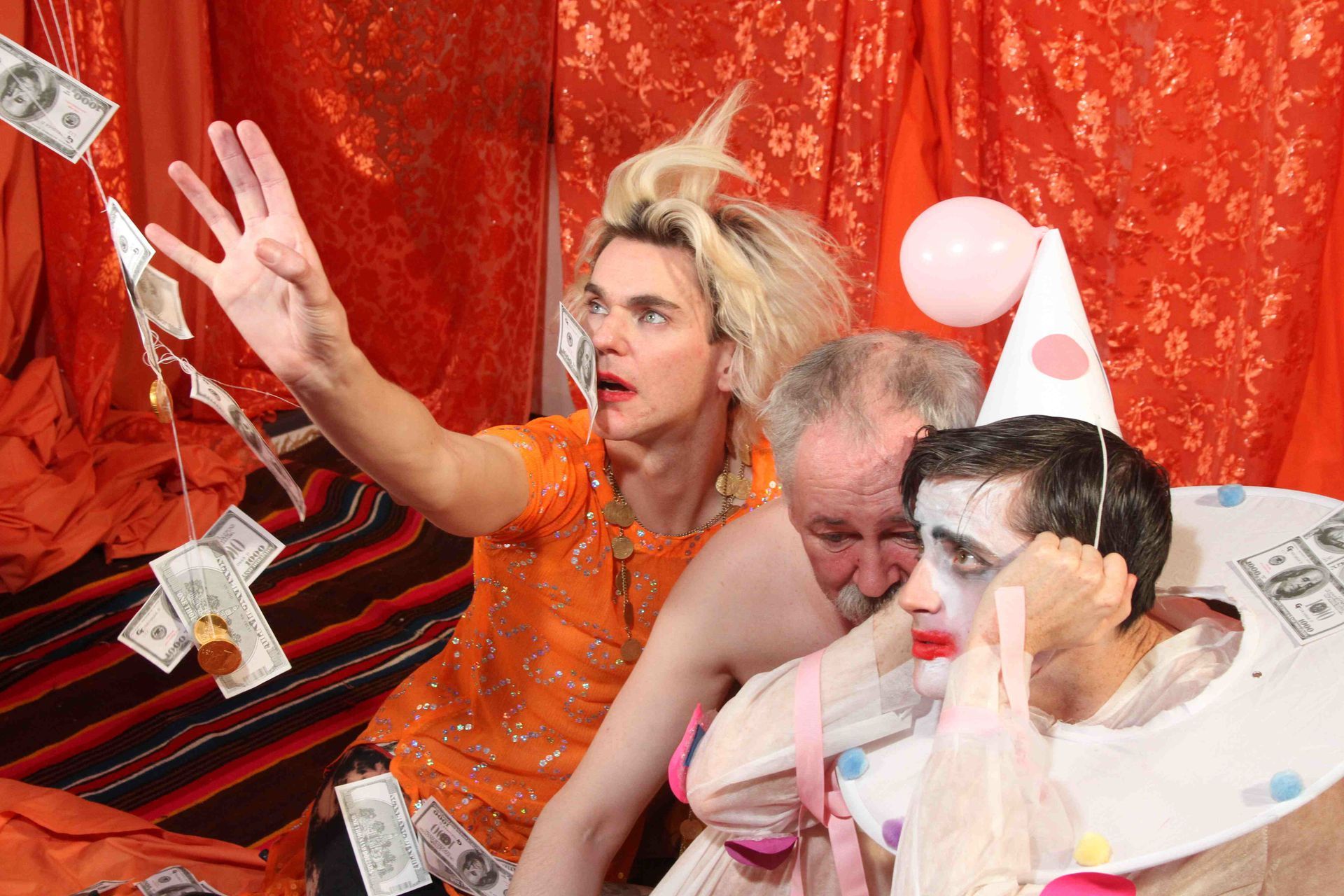Begun five years before her death, her final film Pinochet Porn (2008-2016) is arguably her most ambitious project. Described by the artist herself as a soap opera, this experimental feature film shot largely in Super 8 with the complicity of artist John Brattin behind the camera is a meditation as disenchanted as it is camp on life under the Chilean dictatorship of Augusto Pinochet in the 1970s. Invoking a heterogeneity of sources specific to his artistic practice, this decadent and violent fairy tale confronts the flamboyant and fragile aesthetics of the film medium, with hijacked archival video footage and digital animation sequences
Adapted from the series Circus Lives From Hell, 82 drawings that Cantor finalized in 2005, the film’s scenario resembles a complex and dense narrative assemblage through which Cantor interweaves, in order to better observe and deconstruct them, the symbolic and authoritarian structures of power, in this case those of a fascist state supported by the United States, and their multiple consequences in the construction of personal and collective identities. Divided into five chapters, each of which refers to a distinct character in their transition from childhood to adulthood, this tragicomic chronicle of the twentieth century depicts the learning experience of a generation conditioned by trauma and violence. “There is meaning in being an adult, why is this happening? There’s no way out - everywhere around you there’s perpetual violence, and it’s on a personal level too. While maintaining that vision that you grow up with as a child - that there is goodness, honor, love - how do you reconcile all of that? ” 1 asks Ellen Cantor. While her characters on screen - in particular Paloma and Pipa, the twin daughters of the Chilean dictator - are socially and emotionally constructed, the narrative ends up producing radical political and historical connections, culminating in the collapse of the World Trade Center on September 11, 2001, a climax - or simple fatality, like the film’s final address to the audience: “Is Tragedy a choice?”
“As a postmodern storyteller who uses irony to destabilize narratives of love and innocence and to revel in their utopian possibility, 2 Ellen Cantor has made strategies of appropriation and reassembly one of the fundamental characteristics of her work. With this latest epic project, however, she marks a profound break in her work. “Walking around Tenerife with a clown mask drawn in my hand, almost mad with grief, I realized that I could no longer safely draw inspiration from love. For seven years, love has been my muse” 3 explains the artist while the filming began a year ago. Finished posthumously according to instructions left to his close collaborators, Pinochet Porn is thus to be understood as the “document of an environment, but also as a testimony of an attempt to accomplish something” 4 collectively, to make the experience of a film project the possible site of a new utopian community
—
Jonathan Pouthier















